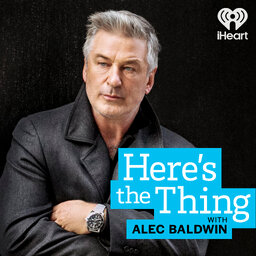Matt Simon on the Plastics Crisis
It has been found at the top of Mount Everest, the bottom of the ocean, and even inside the human body: plastic, once revered as a modern miracle, is now a global threat. Minimally recycled, it never fully disappears; instead, it simply breaks down into tiny particles called microplastics, which contaminate the air we breathe and the water we drink. In “A Poison Like No Other: How Microplastics Corrupted Our Planet and Our Bodies,” science journalist Matt Simon exposes the far-reaching consequences of this omnipresent material on both our environment and our health. Simon, formerly a staff writer at “WIRED” and now a senior staff writer at Grist, a non-profit media organization focused on climate solutions, joins host Alec Baldwin to discuss the alarming impact of plastic pollution, ways to reduce personal exposure, and the urgent solution he believes is needed to tackle this environmental crisis.
In 1 playlist(s)
Here's The Thing with Alec Baldwin
Award-winning actor Alec Baldwin takes listeners into the lives of artists, policy makers and perfor…Social links
Follow podcast
Recent clips

Karina Canellakis - from Violinist to Conductor
47:32

From the Archives: Anjelica Huston on Modeling, Movie-Making, and a Life in the Spotlight
48:25

The Fearless Robbie Kaplan
42:32
 Here's The Thing with Alec Baldwin
Here's The Thing with Alec Baldwin